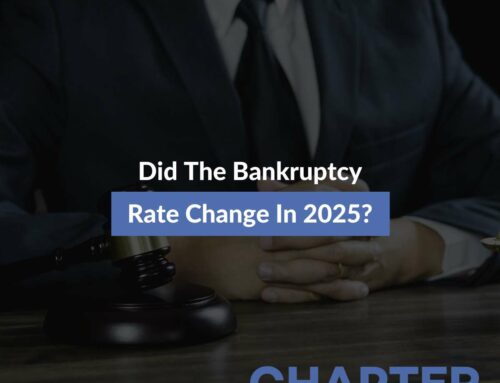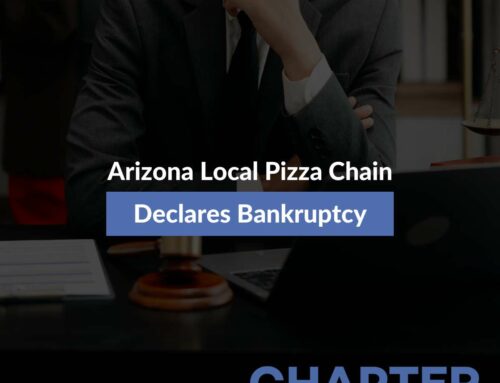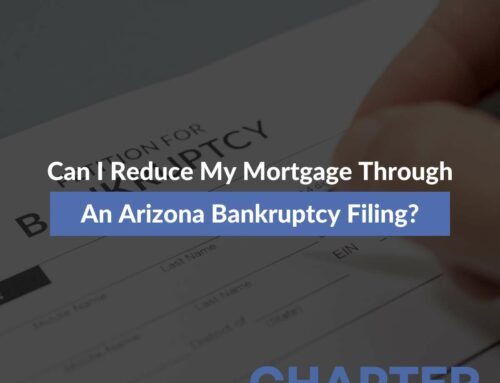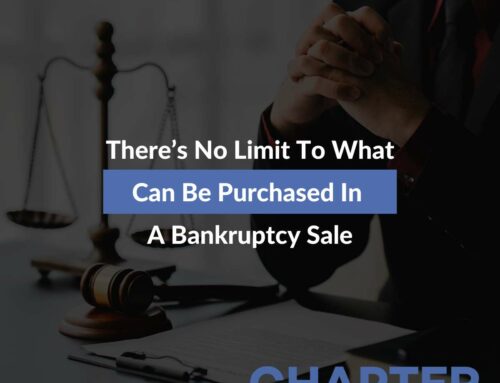Mesa Bankruptcy Lawyers Discuss The Benefits & Drawbacks Of Including Your Spouse In Your Bankruptcy Petition
Are you married and considering filing bankruptcy? Contact our Mesa debt relief team today for additional information.
It is a common misconception that if you are married, your spouse must declare bankruptcy with you. This isn’t true. While it may be less advantageous and inconvenient in some cases, your spouse is free to opt out of your bankruptcy petition. However, your spouse’s obligation on joint debts won’t be cleared by your individual bankruptcy.
If you discharge your debts through bankruptcy without your spouse, your spouse will still be protected from creditor collection as long as you are alive and remain married. However, because your spouse’s obligation to pay was never discharged, the negative mark from that debt may remain on their credit. Your spouse’s individual debts- those that aren’t listed in your petition anyway- are not discharged in your bankruptcy, and your bankruptcy doesn’t protect your spouse from those creditors.
Chapter 7 Income Qualification
When presented with the benefits and drawbacks of each chapter of bankruptcy, many of our clients prefer Chapter 7 over Chapter 13. After all, Chapter 13 bankruptcy is a 3-5 year payment plan with payments of hundreds or even thousands of dollars per month. Chapter 7 is a much faster process, typically 4-6 months, and doesn’t require the debtor to repay any debts. Not everyone has the choice between both chapters.
One of the top things that disqualifies debtors from Chapter 7 bankruptcy is having too high of income. When you file bankruptcy, your household income is used for qualification, not just your own. Regardless of if you file a bankruptcy without your spouse, their income will be combined with yours to determine if you qualify for Chapter 7. Depending on your salaries and how many children you have, you may not qualify for an individual Chapter 7 due to your spouse’s income.
If you do file Chapter 7 without your spouse, you will need to pay close attention while filling out your bankruptcy petition. For example, you will need to include your spouse’s information in Schedules I and J. These schedules represent income and expenses, respectively. It is also likely that you will need to list your spouse as a co-debtor on certain debts. You will need to describe which debts your spouse is associated with in Schedule H, which is co-debtors. Your spouse’s income will also be necessary if you need to complete the Means Test in your bankruptcy petition.
Special Considerations In Chapter 13 Bankruptcy
Chapter 13 bankruptcy reorganizes debts into a 3-5 year repayment plan. Payments will be calculated in part based on your disposable monthly income, which is derived from your combined income. Your credit cards and other lines of credit will be frozen for the duration of your payment plan. A Chapter 13 bankruptcy can also extend loans on secured assets such as your vehicle. For all of those reasons, filing an individual Chapter 13 as a married person is usually infeasible. It is also impossible to finalize a divorce during a Chapter 13. The Automatic Stay that bankruptcy provides freezes assets impedes the property division portion of a divorce.
Check Your State’s Property Division Laws
The decision about whether or not to include your spouse in your bankruptcy could depend on how your state views property in a marriage. For example, if you live in a community property state, spouses are liable for all debts incurred during the marriage by either spouse (regardless of if the debt is taken out in one spouse’s name alone). So if you are in a community property state and accrued most of your debt during your marriage, it may be smart to include your spouse in your bankruptcy so they can’t be pursued for your debts in the future. If your debts are from before the wedding, your spouse can’t be pursued for them, regardless of if they file bankruptcy with you. Your spouse never had a legal obligation to pay those debts, so a discharge in your spouse’s name is irrelevant. A bankruptcy attorney should be able to tell you whether your state uses community property or equitable division, and how this will impact your case.
Other Reasons For Your Spouse To Stay Out Of Your Bankruptcy Petition
Sometimes, there simply isn’t a good enough reason for your spouse to join your bankruptcy petition. If your debts were incurred only in your name, or only before your marriage, it may not make sense in your state to include your spouse. You may have a prenuptial, postnuptial, or other financial marital agreement that protects your spouse from liability for debts being discharged in the bankruptcy. Your spouse may expect to receive an inheritance or other separate property payment that could be subject to seizure by the trustee if your spouse declares bankruptcy with you. Your spouse could have separate property that isn’t protected by any bankruptcy exemptions, which your trustee could seize and sell to pay your debts if your spouse files with you.
Another reason that people sometimes opt out of their spouses’ bankruptcies is because they have filed bankruptcy in the past, and would disqualify their spouse due to mandatory waiting periods between bankruptcy filings. You must wait 8 years to file Chapter 7 after filing a first Chapter 7, and 6 years after a Chapter 13. You must wait 2 years to file Chapter 13 after filing a first Chapter 13, and 4 years after a Chapter 7. Contact a Mesa Bankruptcy Lawyer for additional information.
Contact Our Experienced Arizona Bankruptcy Attorneys
Still can’t decide about whether or not your spouse should be included in your bankruptcy? Our Arizona debt relief lawyers are here to help you through your decision, and guide you through bankruptcy if that’s the right option for you. We can help you review your debts to determine whether or not it would be advantageous for your spouse to be included in the bankruptcy, and confirm your qualification for both Chapters 7 and 13. Chapter Bankruptcy Lawyers offers competitive rates and payment plans starting as low as $0 down for qualified clients. To get started, call or use our online form today to schedule your free consultation.
Click here for more information about filing bankruptcy in Arizona for $0 Down.
Chapter Bankruptcy Lawyers
Mesa Office
3707 E Southern Ave
Mesa, AZ 85206
Phone: 480-405-1010
Email: [email protected]
Tempe Office
4500 S Lakeshore Dr #300
Tempe, AZ 85282
Phone: 480-562-6145
Email: [email protected]








